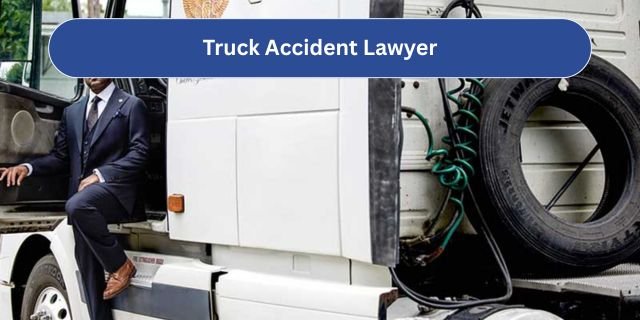Plant injuries in the workplace are more common than many realize, resulting in significant physical and emotional distress for affected individuals. These injuries can range from minor cuts and scrapes to severe lacerations, amputations, or even fatalities. The emotional toll, including anxiety, depression, and PTSD, is often overlooked. Finding the right legal representation is crucial for navigating the complex process of seeking compensation. This article will guide you through understanding the role of a plant injury lawyer, the legal process, and how to protect your rights after suffering a workplace injury. We’ll explore the types of compensation available, the importance of documentation, and the steps to take after an incident.
Understanding Your Rights as an Injured Worker
Navigating the aftermath of a plant injury can be overwhelming. Knowing your rights is the first step towards obtaining fair compensation. Workers’ compensation laws vary by state, but generally provide benefits to employees injured on the job, regardless of fault. These benefits typically cover medical expenses, lost wages, and rehabilitation costs. However, the process can be complex, with stringent deadlines and specific procedures. A plant injury lawyer specializing in workers’ compensation is invaluable in guiding you through this intricate system. They can help you understand your eligibility for benefits, prepare and file the necessary paperwork, and negotiate with insurance companies to secure the maximum compensation you deserve. For example, a lawyer can help you appeal a denied claim or challenge the adequacy of a settlement offer. They can also help you understand the nuances of your specific state’s workers’ compensation laws, which can significantly impact your claim. Don’t hesitate to seek legal counsel if you’ve suffered an injury at work – your lawyer can advocate for you and ensure your rights are protected.
The Role of a Plant Injury Lawyer in Your Case
A plant injury lawyer plays a critical role in protecting your interests after a workplace accident. Their expertise extends beyond simply filing paperwork; they act as your advocate, investigating the incident, gathering evidence, and building a strong case for compensation. This includes interviewing witnesses, reviewing safety records, and consulting with medical professionals to assess the extent of your injuries and their long-term impact. A skilled plant injury lawyer will thoroughly investigate the cause of your injury, identifying potential negligence on the part of your employer or other responsible parties. They will meticulously document all aspects of your case, including medical records, lost wages, and pain and suffering. This comprehensive documentation is crucial in building a compelling case and maximizing your compensation. For example, a lawyer might uncover evidence of inadequate safety measures or equipment malfunction that contributed to the accident. Furthermore, a plant injury lawyer will negotiate with insurance companies on your behalf, striving for a fair settlement that reflects the full extent of your damages. If a settlement cannot be reached, they will be prepared to litigate your case in court.
Gathering Evidence and Building Your Case
Successfully pursuing a plant injury claim requires meticulous evidence gathering. Immediately after the accident, seek medical attention and document every detail. This includes taking photos of the accident scene, noting witness contact information, and keeping a detailed record of your medical treatments, therapy sessions, and lost wages. Any communication with your employer or insurance company should be carefully documented. Your plant injury lawyer will guide you through this process, ensuring all essential evidence is preserved and presented effectively. They might also employ expert witnesses, such as accident reconstruction specialists or vocational rehabilitation experts, to strengthen your case. Consider keeping a journal detailing your physical and emotional experiences following the injury. This personal account can be invaluable in demonstrating the true impact of the accident on your life. Remember, the more comprehensive your evidence, the stronger your case will be. This careful documentation is crucial for securing fair compensation for your medical bills, lost income, pain and suffering, and future medical expenses.
Securing Compensation for Your Injuries
The goal of working with a plant injury lawyer is to secure fair compensation for all your losses resulting from the workplace accident. This compensation can include medical expenses, covering current and future medical treatments, therapies, and medications. It also encompasses lost wages, representing income lost due to your inability to work. Additionally, you may be entitled to compensation for pain and suffering, acknowledging the physical and emotional distress caused by the injury. In severe cases, compensation may also include loss of future earning capacity, accounting for potential limitations on your ability to work in the future. Punitive damages may be awarded in cases where the employer’s negligence was egregious or intentional. Your plant injury lawyer will work tirelessly to ensure you receive the full compensation you deserve, considering all these factors and fighting for your rights throughout the legal process. They will negotiate aggressively with insurance companies, and if necessary, pursue your claim through litigation.
Conclusion
Suffering a plant injury at work can have devastating consequences, both physically and financially. Engaging a skilled plant injury lawyer is crucial for navigating the complex legal landscape and securing the compensation you deserve. Remember to document everything, seek immediate medical attention, and contact a qualified lawyer as soon as possible. By understanding your rights, gathering sufficient evidence, and working closely with your legal representative, you can significantly increase your chances of obtaining a fair settlement and rebuilding your life after a workplace accident. Don’t hesitate to reach out for legal assistance; your future well-being depends on it.


